Should You Take Pre-Workout Before Cardio?
Author:
Unlock your full potential by engaging with our experts and community! Have questions about your fitness journey or looking for expert advice on weightlifting techniques? Don’t hesitate — leave a comment below and Oleksandr Maksymenko will provide a personalized answer and insights to help you reach your goals.
Torokhtiy is reader-supported. Some links are affiliate links, and we may earn a commission at no extra cost to you. See our disclosure page for details.
There are different ways to increase energy levels naturally before going for your cardio session. Some people drink a cup of coffee, others take a caffeine gel or have an energy drink. However, some might wonder if you should take a pre-workout before cardio.
In this article, we’ll dig into the benefits and side effects of taking a pre-workout before your next run.
So, should you take a pre-workout before cardio? – Yes, many ingredients in a pre-workout, such as caffeine, creatine, beta-alanine, and citrulline, can take your running session to the next level. A pre-workout can help improve mental focus, increase strength, and make you last longer.
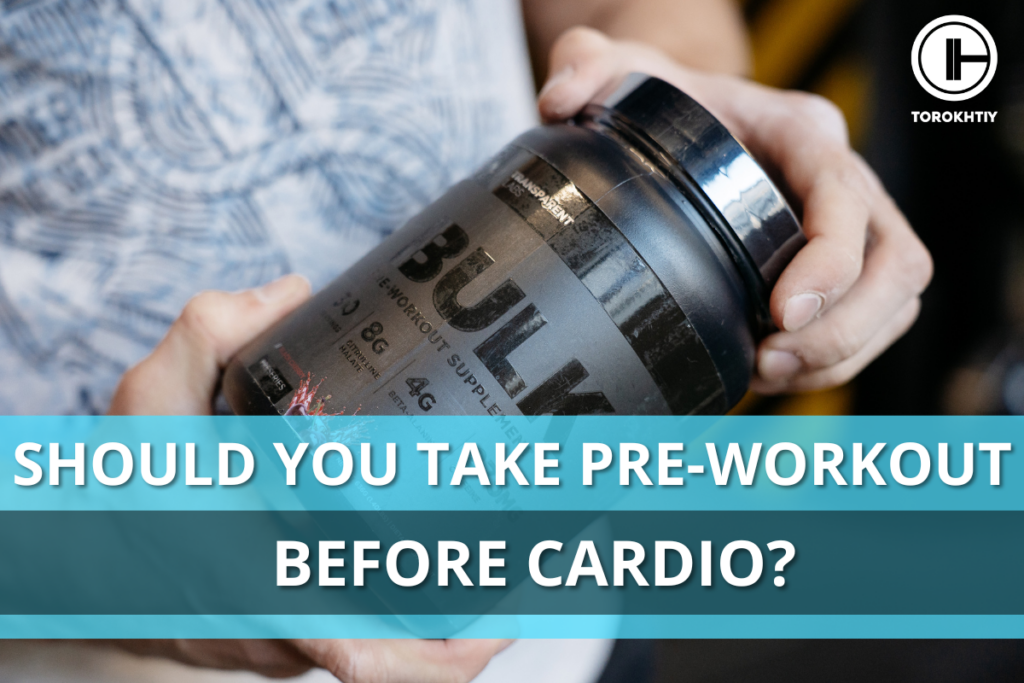
Should You Take Pre-Workout Before Cardio?
Yes, taking a pre-workout for cardio can be a good way to boost your energy levels and improve performance, especially if it contains caffeine. However, just make sure you stay below the recommended intake of 400 mg of caffeine per day and you tolerate your dosage well.
Also, one thing to keep in mind before mixing a pre-workout and cardio is to look for supplements that are third-party tested. The presence of a recognized third-party certification minimizes the likelihood that the product contains a prohibited ingredient.
There are several certifications logos you can search for, such as BSCG (Banned Substance Group Control), NSF-Certified for sports, USP verified, as well as Informed Choice or Informed Sport logos.
Now, before you start taking a pre-workout, make sure you determine what you want to get out of it. Remember that everyone has different needs. So find a pre-workout that works for you.
What Are The Benefits of Pre-Workout Before Cardio?
The benefits you obtain from pre-workouts depend greatly on the ingredients used. So, let’s take a closer look at how does a pre-workout help with cardio.
✅ Increased Focus
One of the main ingredients in pre-workout supplements is caffeine. Research shows that caffeine can have an effect on the central nervous system improving mental focus, mood, and overall cognitive function.
Another common ingredient that can help improve mental focus is L-theanine. Evidence suggests that when paired with caffeine, it seems to positively affect focus.
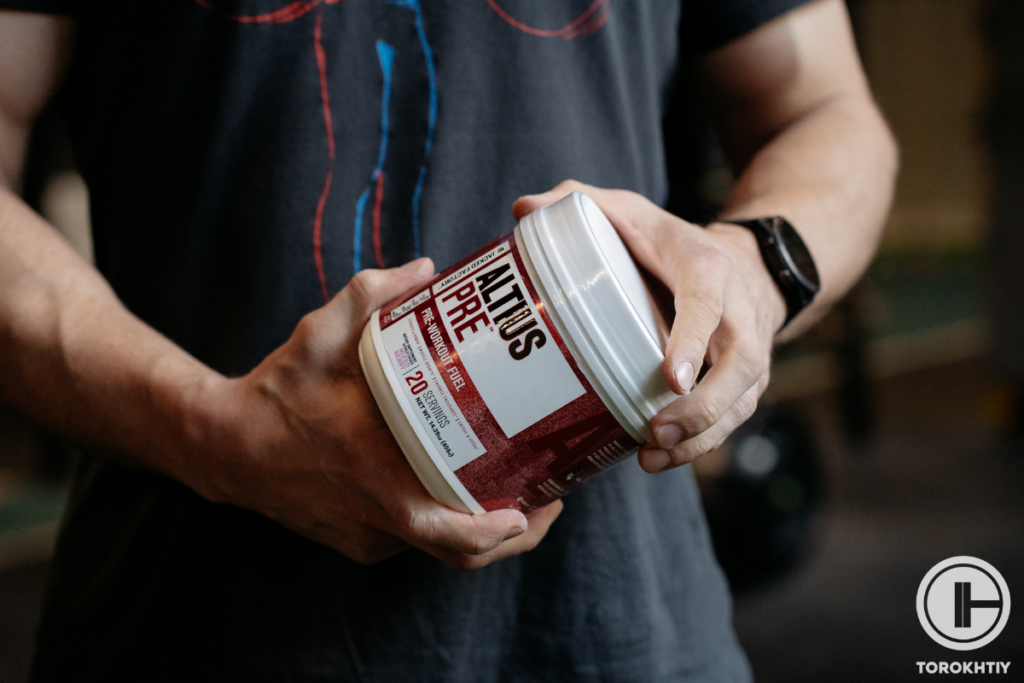
✅ Improved Time To Exhaustion
Another benefit of caffeine is that it can help increase the time before a runner gets tired (time to exhaustion). A study showed that athletes taking caffeine before performance increased 11.3% compared to the placebo group.
In other words, it took longer for them to get tired compared to those that didn’t take caffeine. This is a positive trait since it means you can last longer during your cardio sessions..
Beta-alanine seems to be also an ingredient found in pre-workouts that can help improve time to exhaustion. Beta-alanine can elevate muscular carnosine levels, which in turn help reduce acid levels during exercise. In fact, supplementation with beta-alanine improved time in a 10 km running time trial in physically active adults.
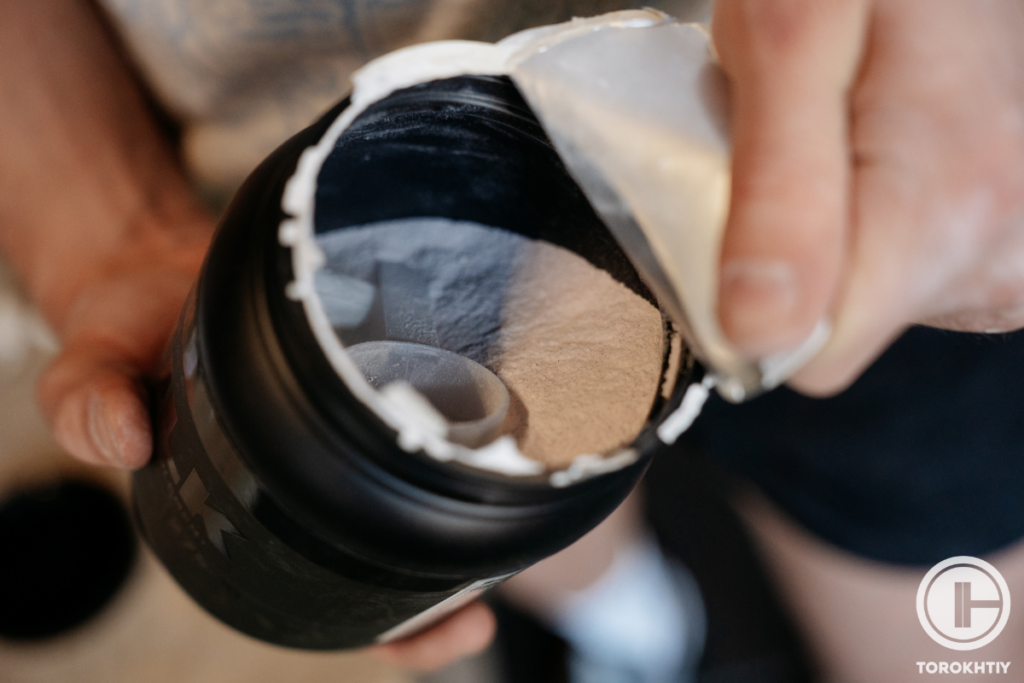
✅ Increased Endurance
Citrulline is a common pre-workout ingredient used to increase blood flow. The benefit of increasing blood flow is that it can deliver more oxygen and nutrients to the muscles. An essential trait for aerobic exercises, which can lead to increased endurance.
In a study, people taking a pre-workout supplement before training had improvements in muscular endurance, which can be helpful for cardio workouts.
✅ Improved Heat Tolerance
If you are currently doing a cardio session in a hot environment, pre-workouts with betaine possibly can be beneficial to reduce the effects of heat on performance and recovery. Evidence suggests that betaine might help improve heat tolerance.
When you train in hot-humid environments, it increases core temperature leading to more peripheral blood flow and an increase in skin temperature. As a result, sweat glands start working to help decrease body temperature.
Due to the change in electrolyte concentration, the body is presented with a thermal and osmotic stress which can have a negative effect on proteins, leading to lower functionality.
The body produces heat shock proteins (molecular chaperones) that can prevent this from happening. It seems that betaines can have similar functionality to chaperones, helping prevent protein denaturation.
The studies performed in humans have mixed results. While the core temperature was not changed, participants reported a power percieved thermal sensation.
Another issues, it that most studies are performed in animal models, meaning more human studies are needed to determine the effects of certain pre-workout ingredients to help improve heat tolerance.
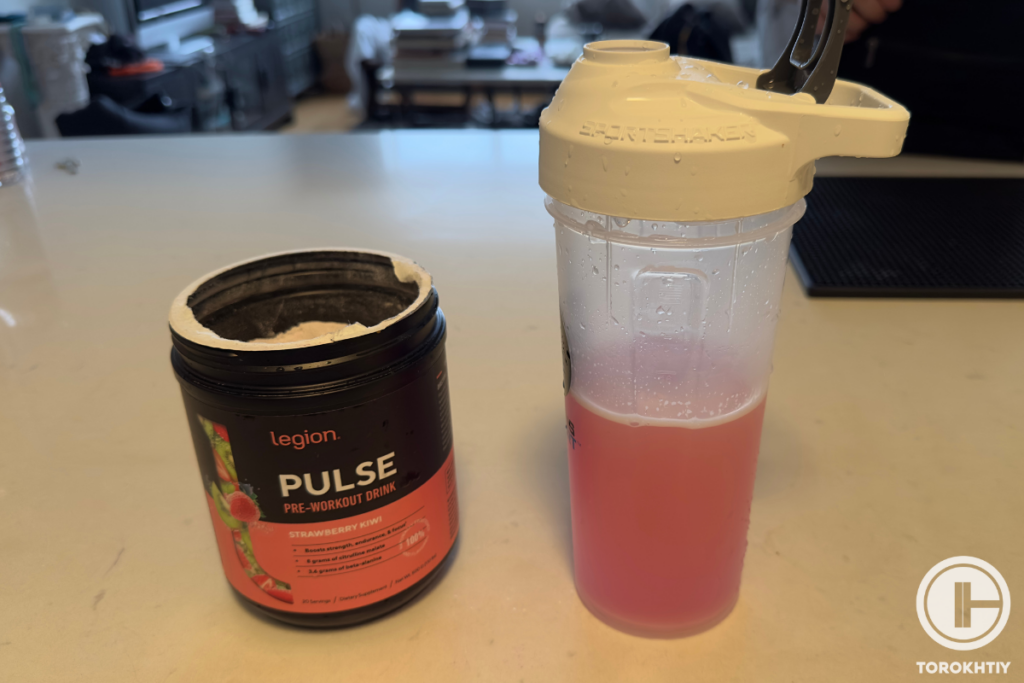
✅ Increased Strength
Creatine is another pre-workout ingredient. Most people associate creatine with only going to the gym. And, while there are some great benefits to supplementing creatine for bodybuilding, there is also room for creatine in aerobic sports.
Creatine increases the reserves of phosphocreatine, which lead to more explosive energy. This is ideal for athletes who perform sprints.
Also, if you are an endurance athlete, creatine can also bring benefits. Creatine can help improve strength and endurance. It can help build stronger legs which can be key for a runner, or improve muscle composition for a swimmer, which in the end, can lead to lasting longer during the workout.
Are There Side Effects You Should Know of Taking Pre-Workouts Before Cardio?
So, as you can see, there are several benefits to taking a pre-workout before cardio.
However, even though most pre-workouts are safe and well tolerated, remember that they can still produce side effects.
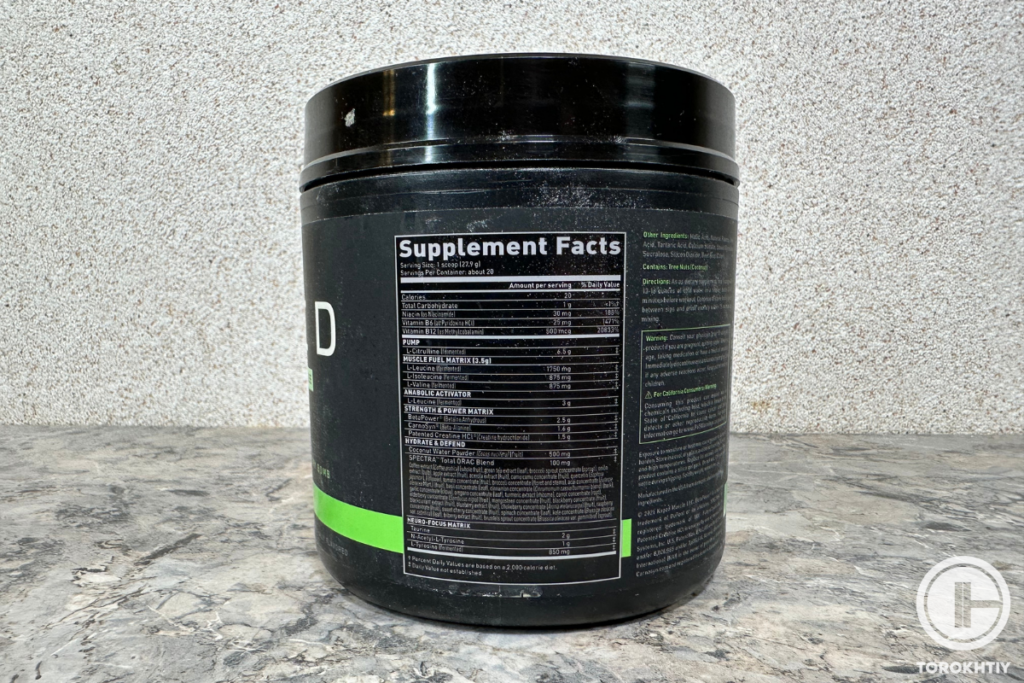
❌ Digestive Issues
One of the most common issues most people have when taking pre-workouts is that they develop digestive issues. The cause may be a reaction to such components as caffeine or sugar alcohol sweeteners. Some of the most common symptoms you might get are bloating, stomach cramps, gas, and diarrhea.
If this happens, you can reduce the pre-workout supplement in half (knowing that you will get a lower dose), or take it with a small serving of food. Also, look for pre-workout supplements without sugar alcohol sweeteners (e.g. mannitol, sorbitol, xylitol); instead, opt for those that use stevia.
❌ Jitters
Due to caffeine, pre-workout supplements might increase the risk of jitters or feeling anxious. In addition, drinking too much caffeine can also increase the risk of headaches, increased heart rate, or upset stomach.
Remember to consider your daily caffeine intake. Therefore, all beverages such as coffee, tea, energy drinks, colas, etc. are considered. To reduce the risks of side effects, try to reduce your intake of other drinks with caffeine on the day of taking a pre-workout.
If you are sensitive to caffeine, get a pre-workout supplement with a lower caffeine content, or for those that are stim-free, free from stimulants such as caffeine.
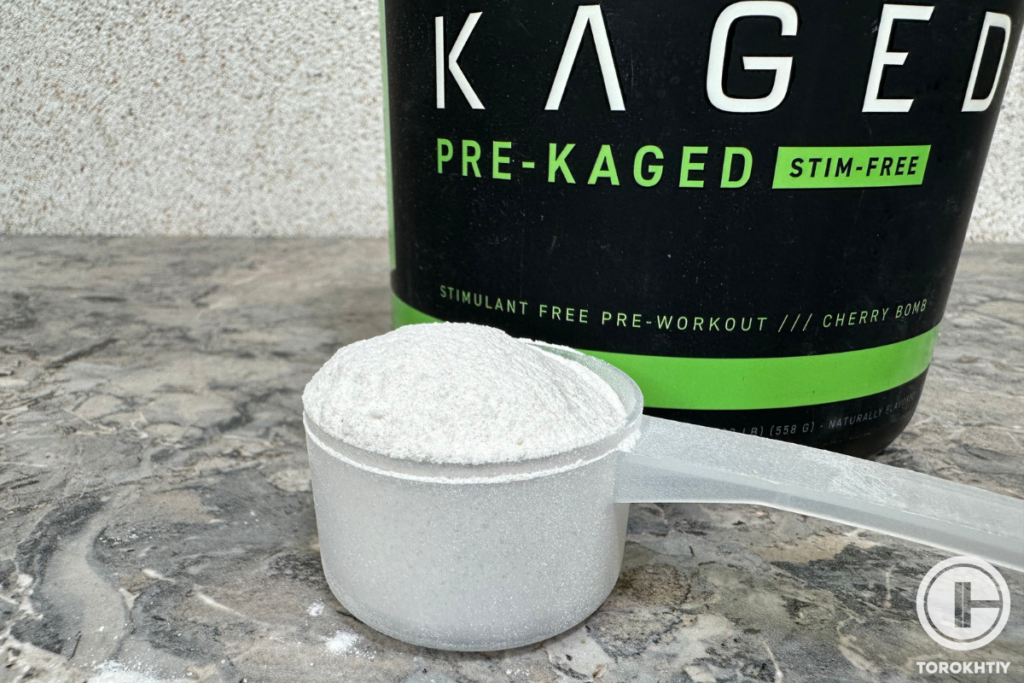
❌ Tingling Skin
Paresthesia, or that tingling sensation you might get from drinking a pre-workout can be due to an increased intake of beta-alanine. If this happens, you can look for a pre-workout supplement that has a small amount of beta-alanine.
You could also get a pre-workout supplement without any beta-alanine and add it separately. That way, you can control the amount of beta-alanine you are having.
❌ Sleep Problems
Finally, an unpleasant possible side effect of a pre-workout is possible sleep problems. Since caffeine stimulates the central nervous system, it can affect sleep quality and produce insomnia.
So, if your pre-workout supplement contains caffeine and you are sensitive to it, make sure you are only drinking it in the morning. But, if you are running in the evening, it might be better to get a stim-free pre-workout to prevent it from affecting your sleep.
Pre-Workout Supplement Naked Energy
- Item Form: Powder
- Best For: Training Volume, Muscular Endurance, Reducing Fatigue, Enhanced “Pumping” Effect
- Flavor: Unflavored
- Special Ingredients: Beta-Alanine, L-Citrulline Malate
- Servings per Container: 50
- Serving: 5g
- Price Per Serving: ~$0.72
- Company Founded: 2014
- Recommended by Athletes: Daniel Victor
Naked Nutrition is a pre-workout supplement we recommend. It doesn’t contain any artificial ingredients and a reasonable dose of 200 mg of caffeine per serving meaning it can decrease the risk of getting digestive issues (but it doesn’t eliminate them completely, it depends on the sensitivity to caffeine and you can adjust a dose starting at half the recommended).
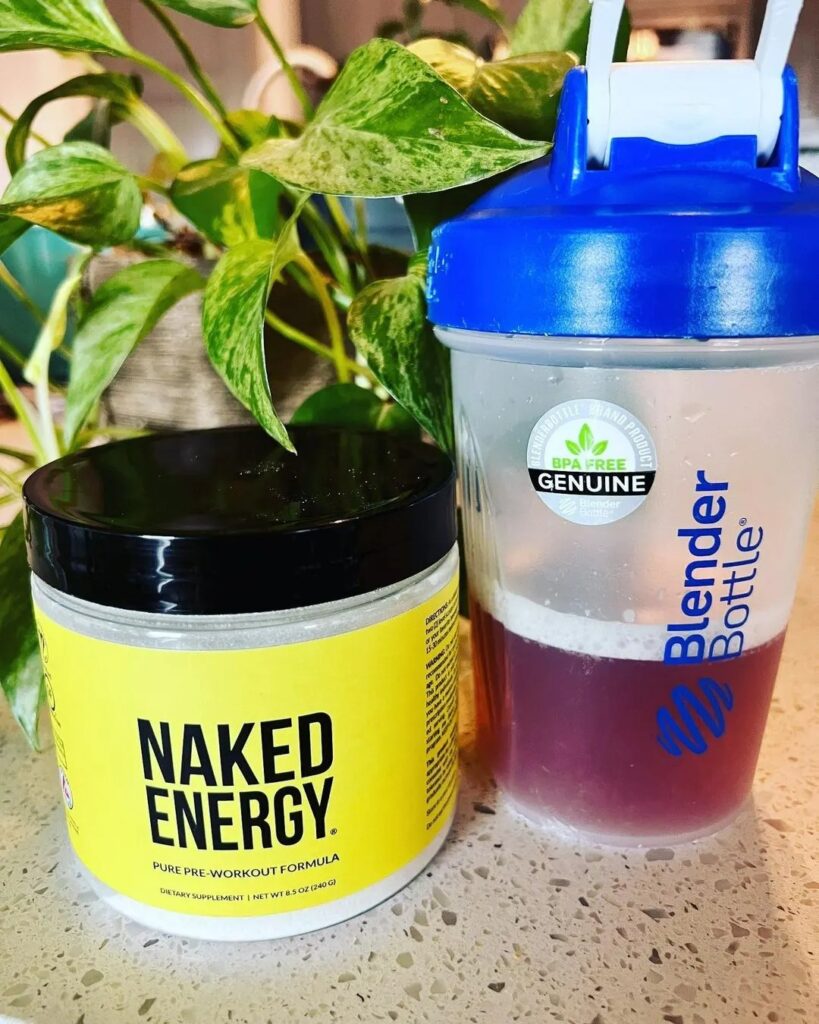
Speaking of enhancing performance, this pre-workout contains beta-alanine, creatine monohydrate, L-arginine, and caffeine. Also several essential vitamins and minerals which can help keep your body in a healthy state.
Taking Naked Nutrition before a cardio session can help improve focus, boost energy, and increase strength,power and endurance.
FAQ
Can You Do Cardio After Taking Pre-workout?
Yes, you can do cardio after taking a pre-workout. In fact, as the name suggests, a pre-workout is supposed to be taken 30 to 60 minutes before training. Taking a pre-workout before cardio can help improve focus, energy, and increase the time to exhaustion, meaning you can last longer.
Does Pre-workout Help With Cardio?
Yes, a pre-workout can help improve focus and boost your energy, especially if you are doing a cardio workout first thing in the morning. It can also provide strength and power to help you get the most out of the workout.
It Is Bad to Take Pre-workout Before Cardio?
No, it is not bad to take a pre-workout before cardio. To get the most out of a pre-workout, it is encouraged to take it before a training session. You don’t have to go to the gym or practice weight training to benefit from a pre-workout.
Conclusion
So, can you take a pre-workout before cardio?
The answer is definitely! Taking a pre-workout 30 to 60 minutes before a cardio session, such as running, cycling, or swimming, can help improve your time. Since it increases mental focus and boost energy, it can be a quick way to give you that energy jolt first thing in the morning.
In addition, it can also delay fatigue, allowing you to last longer, and reduce your running times.
However, remember that the results you obtain with a pre-workout go hand-in-hand with good nutrition. If you are not eating the right foods before working out, it can create stomach issues, and it might not provide sufficient energy.
Including a high-carb food such as a banana, oats, or granola can be a good idea to include before running. Still, it’s best to talk with a health professional for them to guide you on which is the best pre-workout meal based on your needs and whether there are any contraindications to the use of pre-workout supplements.
So, do you take a pre-workout supplement before going for a run? Let us know in the comments!
Also read:
- G Fuel vs Pre Workout
- Pre Workout vs Post Workout
- Caffeine Pills vs Pre Workout
- Does Pre Workout Make You Lose Weight
- Pre Workout That Makes You Sweat
- Are There Natural Pre Workout Supplements
- Does Pre Workout Help You Focus
References:
- Spilling the Beans: How Much Caffeine is Too Much? // FDA: https://www.fda.gov/consumers/consumer-updates/spilling-beans-how-much-caffeine-too-much
- Mechanisms of the Psychostimulant Effects of Caffeine // NCBI: https://www.ncbi.nlm.nih.gov/pmc/articles/PMC4846529/
- Effects of Acute Caffeine, Theanine and Tyrosine Supplementation on Mental and Physical Performance in Athletes // BMC: https://jissn.biomedcentral.com/articles/10.1186/s12970-019-0326-3
- Caffeine Improved Time // Human Kinetics Journals: https://journals.humankinetics.com/view/journals/ijsnem/26/6/article-p549.xml
- International Society of Sports Nutrition Position Stand // NCBI: https://www.ncbi.nlm.nih.gov/pmc/articles/PMC4501114/
- Beta-Alanine Supplementation Improved 10-km Running Time Trial in Physically Active Adults // NCBI: https://www.ncbi.nlm.nih.gov/pmc/articles/PMC6092497/
- Effects of Pre-Workout Supplements on Strength, Endurance, and Mood // IJAHSP: https://nsuworks.nova.edu/ijahsp/vol17/iss1/7/
- Betaine Supplementation May Improve Heat Tolerance // MDPI: https://www.mdpi.com/2072-6643/12/10/2939/htm
- Creatine Supplementation for Muscle Growth // NCBI: https://www.ncbi.nlm.nih.gov/pmc/articles/PMC8949037/
- The Creatine-Phosphocreatine System // NCBI: https://www.ncbi.nlm.nih.gov/pmc/articles/PMC2278982/
- Photos made by Torokhtiy Media Team
Why Trust Us?
With over 20 years in Olympic weightlifting, strength training, nutrition coaching, and general fitness our team does its best to provide the audience with ultimate support and meet the needs and requirements of advanced athletes and professional lifters, as well as people who strive to open new opportunities and develop their physical capabilities with us.
By trusting the recommendations of our certified experts in coaching, nutrition, and sports training programming, as well as scientific consultants, and physiotherapists, we provide you with thorough, well-considered, and scientifically proven content. All the information given in the articles concerning workout programming, separate exercises, and athletic performance, in general, is based on verified data.
The product testing process is described in more detail here.
Author: Oleksandr Maksymenko
Certified Sports Nutritionist,
MSc Sports Dietetics
Specializing in: Weight management, Fitness / Sports nutrition
Oleksandr is a professional fitness nutritionist certified by the Fitness Professional Association (FPA). He follows the principles of evidence-based dietetics and fosters a healthy relationship with food in his clients, ensuring there are no strict prohibitions on their favorite foods or frequent lapses. His primary goal is not only to achieve results for you but also to sustain them over the long term, all while enjoying tasty and delicious food.



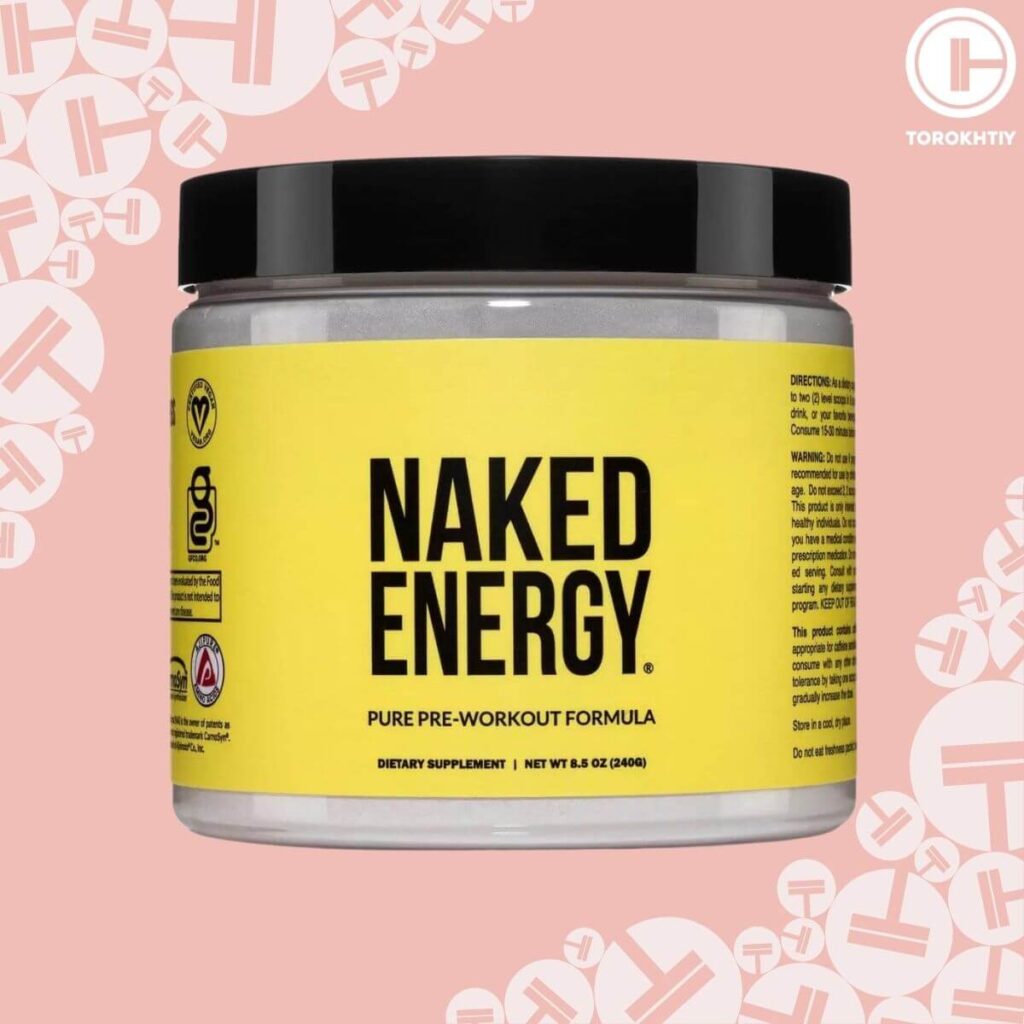
Still have questions after reading our article? Unlock your full potential by engaging with our experts and community! Don’t hesitate — leave a comment below and Oleksandr Maksymenko will provide a personalized answer and insights to help you reach your goals.